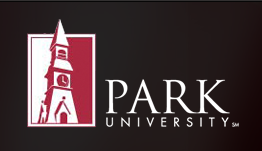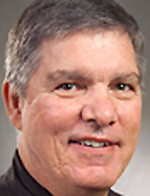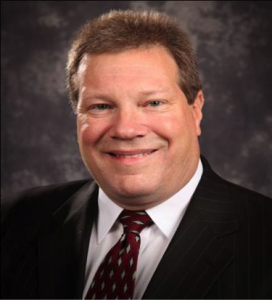Recruiting, Training, Mentoring, Observing, and Evaluating a Successful Online Program
Park University has utilized some type of formalized evaluation of their online adjunct instructors for eight years. For the past five years Park has utilized the Faculty Online Observation (FOO) for the annual observation of all online adjunct instructors for at least one course. A key to success is consistency and cohesion of your observers with the distance learning team, faculty, and the administration. The observers, known as the “gang of 7” have a century of college teaching experience, about 75 years of distance learning experience; and, to meet the needs of our military students’ needs, between military spouses and military service, the ‘gang’ has century of military service.
A challenge for any institution that offers programs at a distance is how to maintain the balance of academic quality and consistency in instruction. Park University has taken the initiative to develop a program that ensures instructors are recruited, trained, mentored, and evaluated. Park Distance Learning (PDL) has established criteria and standards in which they will do each of these functions. It is important to note that with the collaboration and usage of eCollege (used by hundreds of institutions), Park experienced a 1,000 percent increase in enrollments many times over since 1999. As such, we needed to ensure that we were developing a consistent product, recruiting good faculty, and developing a solid evaluation process for retaining and retraining our faculty
 After new faculty members are recruited, they are required to complete the Park Online Instructor Qualification Seminar – PDL750. The course is six weeks in length and covers the basics of working in the eCollege environment. Park courses are developed by faculty members with the guidance and assistance of a Course Developer/Instructional Designer – thus course development is not included in this training. There is, however, an emphasis placed on the standards of Park University courses, the importance of course objectives, core learning outcomes, communications, grading and gradebooks, building community, and the like. The key focus of the course is on: theory / pedagogy, technology, and, policies and procedures.
After new faculty members are recruited, they are required to complete the Park Online Instructor Qualification Seminar – PDL750. The course is six weeks in length and covers the basics of working in the eCollege environment. Park courses are developed by faculty members with the guidance and assistance of a Course Developer/Instructional Designer – thus course development is not included in this training. There is, however, an emphasis placed on the standards of Park University courses, the importance of course objectives, core learning outcomes, communications, grading and gradebooks, building community, and the like. The key focus of the course is on: theory / pedagogy, technology, and, policies and procedures.
A key to the PDL750 instructor training course is consistency. Park University has retained many of the same instructors for courses for ten years or more. Of course, the support has increased. Park University has adopted and continues to utilize the eCollege platform. Park has continuously improved the recruiting process, added an instructional design team, and professional development of instructors is ongoing.
As a factual aside, instructors are not compensated for attendance at PDL750, nor are they charged a fee to attend this seminar. Following completion of PDL750, to every extent possible, the new adjunct instructor is assigned an online course in the next available term, to avoid any deterioration of the newly acquired skills. Additionally, upon completion of PDL750, new online adjunct instructors are assigned a course in the following term and assigned an experienced online faculty mentor. The mentor guides them through their first course; and, for many instructors, the bond between mentor and mentee has remained over a decade.
Additionally, the new adjunct instructor is provided full access to PDL751.
PDL751 — the Online Instructor Resources Forum is an instructor-moderated forum which provides a venue for our online instructors to meet, to share ideas and approaches, or to ask for help solving a problem. It’s a place where they can find information and resources pertaining to their role as an online educator for Park and to their discipline. It also serves in part as a social networking site. PDL751 is provided in a course shell/ forum and contains much of the information found in the online training courses, along with additional information about the various PDL programs and processes, as well as an ongoing faculty forum.
The evaluation function of the Faculty Online Observation (FOO) ensures quality courses- and, aggregately, quality programs. Also, the earlier evaluation method, the Online Instructor Evaluation System (OIES) initiated somewhat of a tension between content experts (department) and online teaching experts of the Evaluation team. Often, full time faculty, teaching mainly in the classroom, are not always up-to-date on research concerning ‘online’ teaching; and, vice-versa (even though our evaluators are all terminally-degreed in their academic discipline) evaluators were not always academic subject experts in all disciplines that they evaluated.
…it was very important to ensure that the observations performed on online adjunct faculty are consistent, no matter which observer observed which faculty member.
The Faculty Online Observation serves a number of purposes. First and foremost, it ensures the finest quality education experience for our online students. Next, it provides pragmatic instructional support for our online instructors, and gauges the needs and strengths of our online instruction delivery methods. It is not only assumed, but ensured, that all online adjunct faculty members have completed training in the Park online facilitation policies. The FOO allows for an online observation of course facilitation by trained course observers and course content evaluation by program coordinators. And, the FOO was developed from and evolved from the OIES. The four major portions remained:
- Course Organization & Facilitation
- Building Community in the Online Classroom
- Discussion Facilitation & Instruction
- Assessment, Grading & Feedback
It should be noted that it was very important to ensure that the observations performed on online adjunct faculty are consistent, no matter which observer observed which faculty member. To ensure this consistency, the observers utilized an Inter-rater Reliability test period over six terms in which each online observer observed five additional online faculty members each term. These were the same observations by each of the six observers to check that the faculty observations were the same, no matter which observer observed which online adjunct instructor. The findings were statistically significant, revealing that no matter which observer were assigned to an adjunct faculty member, the observation rating would be consistent; that is, they were the same.
The observers (also known as the “Gang of Seven”) have utilized a weekly conference call to discuss any and all issues related to adjunct observations and all other related issues since January of 2006 (4 of the 7 have been members of the “gang” since that time). And, all members of ‘the Gang’ have been teaching for Park University since at least 2004, some even longer. What we do at Park University is truly a process that is successful because of many dedicated people. Student success is our objective. Our adjunct instructors are our biggest commodity for achieving this success. The process depicted represents the adjunct faculty progress from recruitment to becoming part of the team with the addition of future teaching assignments.
We have come a long way to meet the demands required to offer an outstanding online program with over 55,000 annual enrollments. We are, like many other institutions, somewhat of a Pillsbury Doughboy process.
We have come a long way to meet the demands required to offer an outstanding online program with over 55,000 annual enrollments. We are, like many other institutions, somewhat of a Pillsbury Doughboy process. The online program grows; you need faculty; you need courses; you need quality; you need academic advisors, counselors, academic support, course support, proctors, faculty support, faculty training, professional development; and, on and on. And, you have to balance all of these. You can’t have too many new instructors waiting to be trained. You can’t have too many new instructors waiting to teach. You can’t have subject matter experts (SME’s) waiting to develop needed courses. And, given all of this, you have to have quality courses and quality programs and consistent programs.
We are ensuring this with such things as a Tri-Modal study (16-week in-class, 8-week in-class, and 8-week online) have the same syllabus, core learning outcomes (CLO) and core assessments (CA) and are taught in the same manner in all modes. And, Park Distance Learning does this and strives for success. The need for excellent, efficient academic and student service support must be met and maintained. We changed the way we recruited faculty, no longer in-class hold-overs from Parkville and the SEL sites; but, now we utilize a nationwide effort to recruit. We changed the way we trained online faculty. We changed the way we developed our courses. We changed the way we evaluated and/or observed instructors. We changed the way we evaluate courses. We changed the way that we mentor new faculty. We changed the way we worked with our stakeholders. All of our distance learning processes have been developed by the hard work of a number of dedicated faculty, staff, and administrators and continue to be improved. Likewise, the process can be applied to other institutions willing to put the time and effort in their online programs.
Dr. Michael Eskey is an Associate Professor and Program Coordinator of the Criminal Justice Administration program of Park University. He serves on a half-time release as an online instructor evaluator. He has worked online as an instructor, course developer, evaluator, and mentor. Dr. Eskey has taught both online and in the classroom at the graduate and undergraduate level since his retirement from the military in 2001 at the rank of colonel. He received his Ph.D. in Criminology from the Florida State University in 1982.
Dr. Hank Roehrich is an Assistant Professor of Marketing and an Online Faculty Evaluator at Park University. Dr. Roehrich has an extensive background in the area of online development, teaching, mentoring and faculty evaluation in higher education. He has a doctorate in Educational Leadership with an emphasis in Higher Education Administration from the University of North Dakota.









